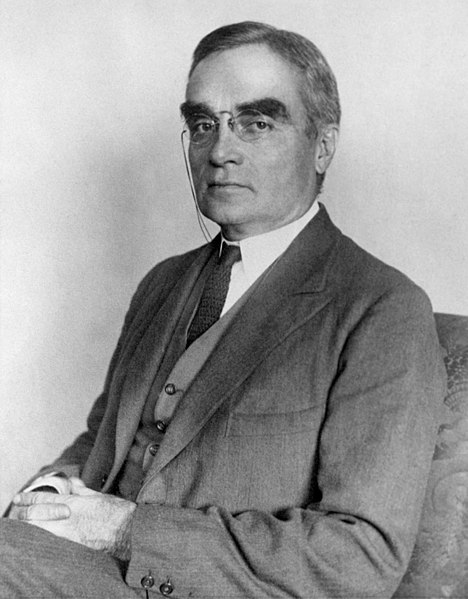Posts by Dr. Boli
From DR. BOLI’S ENCYCLOPEDIA OF MISINFORMATION.
IN BUSINESS NEWS.
Advertisement.
SPACE CHICKEN.
Announcer. And now Malt-O-Cod, the malt food drink that’s brain food, presents…
(Music: Fanfare.)
Space Chicken. Bwuck-bucbucbuc-buckabucbuck-buckAWP!
Announcer. The adventures of Space Chicken!
(Music: Theme, in and under for…)
Announcer. Yes, it’s Space Chicken, the avian ace whose skill and quick wit are matched only by her sheer stout-hearted pluck!
Space Chicken. BuckAWWWWP!
Announcer. Oh! Sorry. I won’t use that word.
(Music: In full, then fade under…)
Announcer. As you recall from last week’s episode, Space Chicken had been rocketing across the galaxy in her streamlined space racer, the Pullet Bullet, when suddenly her ship was entangled in a strange alien farce field.
Space Chicken. BuckAWWPbucbucbuck!
Announcer. Weird alien beings with green skin and long green robes materialize in the cockpit of the Pullet Bullet.
Space Chicken. Brawwwk!
Alien Being (reverberating voice). Greetings, earth traveler! We are beings from a distant star, and we demand information from you.
Space Chicken. BAWWKbucbucbuck!
Alien Being. No, not the disposition of your earth fleet. We have no interest in military matters. We have been studying your earth philosophy, and we want you to explain to us the difference between the Aristotelian and the Cartesian conception of the self.
Space Chicken. BucBAWWKbucbucbucbuck!
Alien Being. We have brought these persuasion devices to convince you if you are recalcitrant. It would be best to begin at once.
Space Chicken. Bwawwkbucbucbwawwk!
Alien Being. Well, of course, I am familiar with Descartes’ famous dictum. Everyone in the galaxy has heard that one.
Space Chicken. BucbucBAWKbuck!
Alien Being. Well, that’s ridiculous. You can’t just say that Aristotle meant the same thing when he said “I” that Descartes meant. That‘s avoiding the issue.
Space Chicken. BuckaBWAWKbucbucbuc!
Alien Being. Yes, I know, thinking animal. But there must be some substantial difference between them.
Space Chicken. BWAWK! BucbucbucBAWWWK!
Alien Being. Is that so? Well, perhaps you will not be so stubborn when we have applied our persuasion devices.
Space Chicken. BuckAWPbucbucbuc!
Alien Being. Yes, these are aqueous projection units. They emit a broad stream of water which will cause the uncomfortable and unpleasant sensation of being wet.
Space Chicken. BRAWWWWKbucbucbuck!
Alien Being. You still refuse to state the difference between the Cartesian and Aristotelian notions of the self? Then you leave us no alternative.
(Sound: Loud squirting and splashing and flapping.)
Space Chicken. BAWWWK! BAWKABAWKABAWKABAWWWWWK! BRAAAWWWKABUCBUCBUCK BRAWWWK BRAWWWK BRAAAWK! BRAKKABUCKABRAKKABRAWWWK! BuckAWWPBRAAWPBRAWWWWWK!
Alien Being. Look out! She’s mad as some sort of previously unknown life form that we have no proverbial expression to describe!
Space Chicken. BRAWPA BUCBUCBUCBRAWWWWWK! BRAWWKBRAWWKBUCKAWWWPABRAWWWP! BRAAAWKABUCKABUCKABUCKABRAWWK!
Announcer. Will the mysterious aliens survive their encounter with Space Chicken in her wet form? Don’t miss the surprising answer in the next thrilling episode of Space Chicken!
(Music: Theme, in and under for…)
Announcer. Kids, you can travel the length and breadth of the galaxy, but you’ll never find a better malt food drink than Malt-O-Cod. The secret is in the real cod-liver oil that goes into every satisfying glass. Nothing but the cream of the North Atlantic cod fisheries is good enough for Malt-O Cod, now with the official Space Chicken decoder mallet in every specially marked package. It’s the malt food drink that’s brain food—Malt-O-Cod!
(Music: In full, then out.)
FROM THE ILLUSTRATED EDITION.
From DR. BOLI’S UNABRIDGED DICTIONARY.
Leader (noun).—Anyone who keeps his or her finger in the dike long enough for the rest of us to forget that there is a North Sea. When the leader retires, the ensuing flood is the fault of the incoming administration.
LETTER TO THE EDITOR.
Sir: I am appalled. I am also outraged. It would not be too much to say that I am incandescently furious.
What is the object, you ask, of my white-hot indignation? I have forgotten. It has been years since I was able to specify the cause of my appalledment. All I know is that I have been appalled for a good long time now, and in those years I have built up heaps of appalledness, a fortress of appalleditude, an appallation mountain as it were. I am appalled when I rise in the morning. I am appalled while I eat breakfast. I am appalled at work all day; I am appalled when I come home to my efficiency apartment; I am appalled when I lay my head on my pillow.
It is, in short, my state of unrelenting appalledification that gets me through the day. But I was not always so fortunate. I had to teach myself the skills I have so laboriously built up: no one taught me to be appalled this way. In school, outrage was not even a whole class, let alone the main focus of my education. Only in history classes was any kind of outrage specifically taught, and even then only in conjunction with very limited subjects, like slavery. Anyone can be appalled by slavery! Where’s the skill in that? It would not be too much to say that it took a lifetime of careful training and desensitization for the slaveholding classes not to be appalled by slavery.
What we need is a complete reform of our educational system. Throw out all the useless detritus of the past, which only a misguided reverence for tradition keeps alive. Children don’t need to learn math, because we have calculators on our phones. Children don’t need to learn to write, because we have artificial intelligence. Children don’t need to learn to read, because we have YouTube. What children do need is the skill to be appalled all the time, without the need of a particular subject to be appalled about. They need to learn the art of nonspecific outrage. Perhaps, if I may offer a suggestion, they can be taught to be appalled about their own education, and then it will be easy for them to generalize from there.
—Sincerely,
“Mad Marvin” Blitzmueller, M.Ed.




